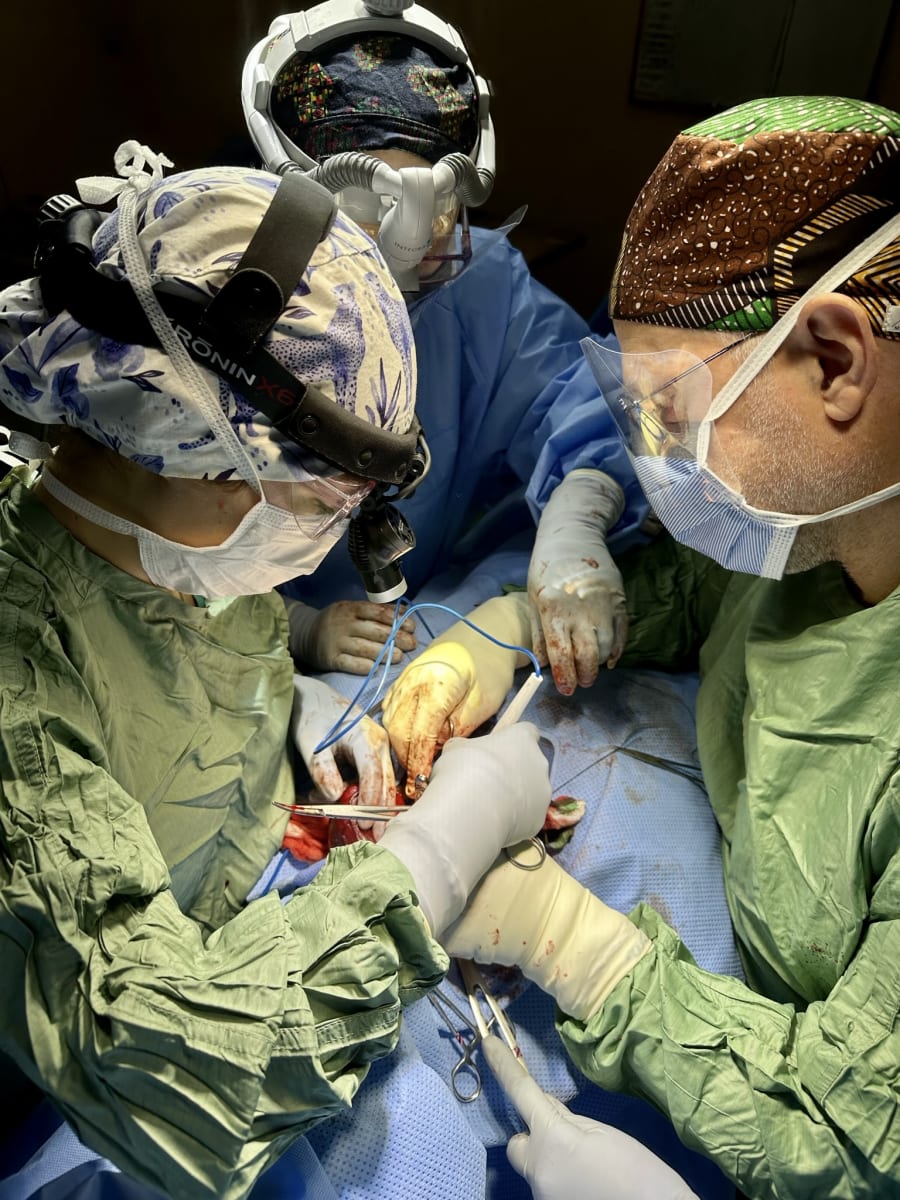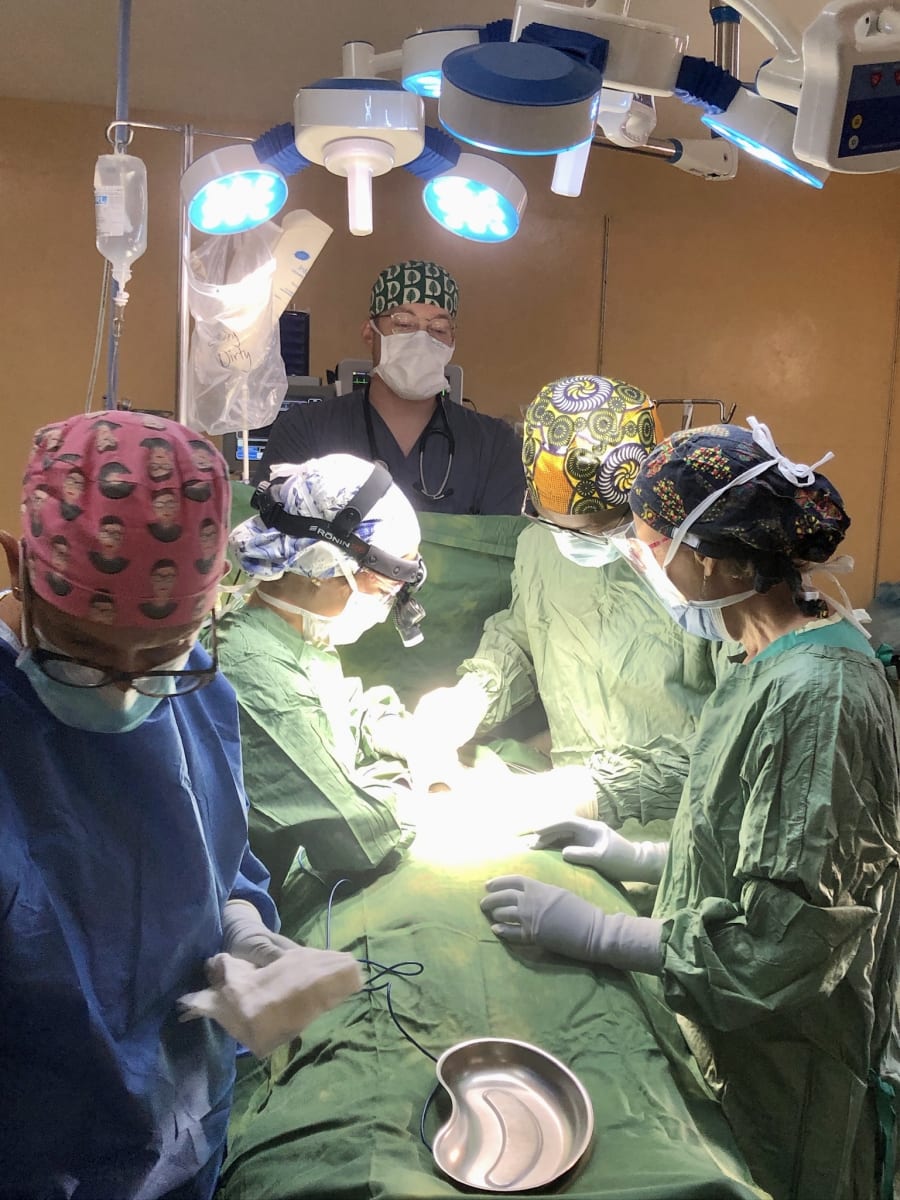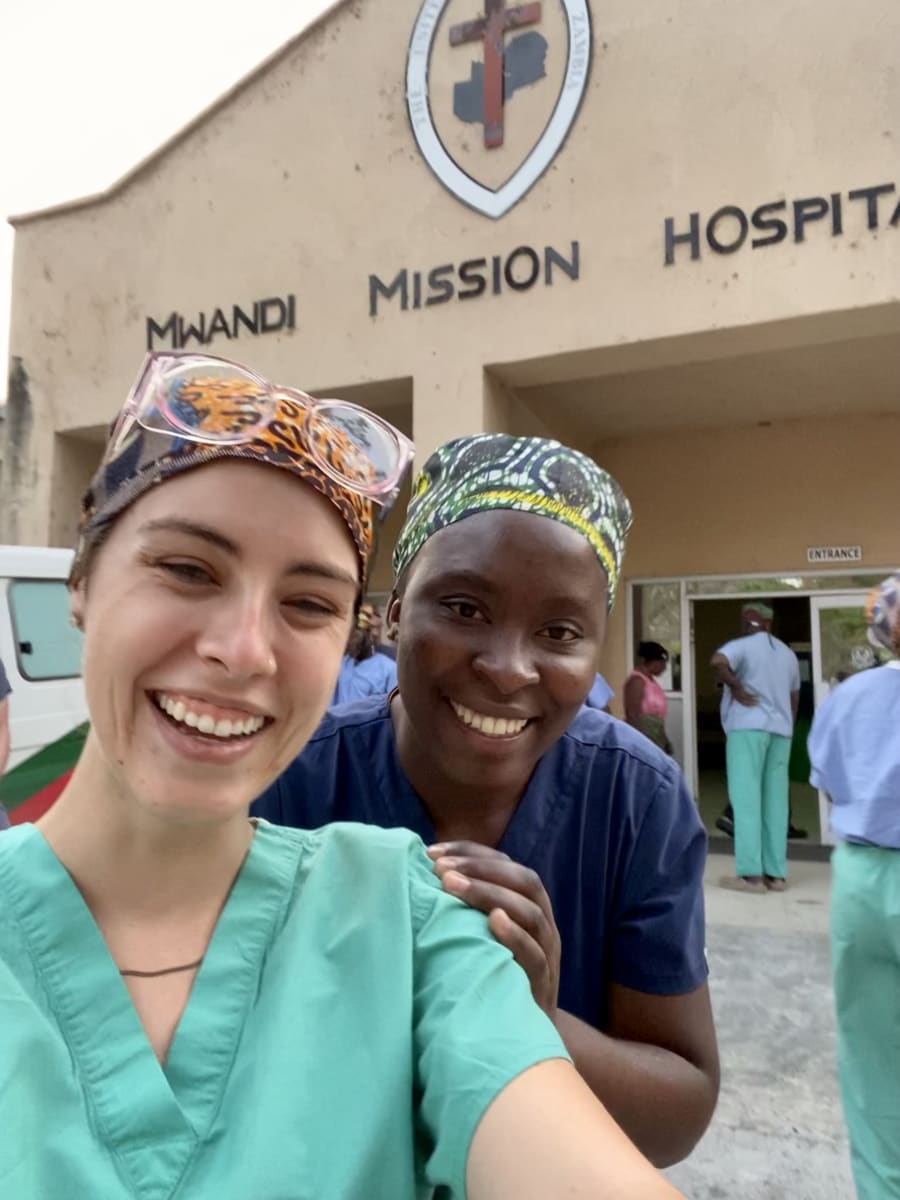This will be a 2 week surgical mission that involves gynecological, general surgical and ENT procedures. The most common procedures performed are adult and pediatric hernia repair, thyroid surgery, hysterectomy, oophorectomy, benign tumor resections, and orchiopexy for pediatric undescended testicles. A major part of this trip involves education of the current Zambian providers at the Mwandi Mission Hospital in surgical techniques. The surgical impact is immense. Many patients travel many miles for care they would otherwise not have access to. For farmers and fisherman with debilitating hernias, it will allow them to work and provide for their families. Iodine deficiency and goiter formation is a condition that leads to social stigma and ostracization which is common in this community. The Mwandi mission hospital not only addresses malnutrition, and aims to decrease the rates of cretinism and goiter formation, but the surgery allows patients to breathe with ease and and integrate back into their community without the stigma and disfiguration of a goiter. Resection of large, disfiguring uterine fibroid tumors as well as gynecological disease screening and management is also offered here.
Mwandi Mission Hospital is a small hospital in rural western Zambia that serves a population of about 30,000. This population has to travel great distances for health care and surgical care. Patients have often been suffering for years with curable surgical disease but do not have the resources or savings to make the journey. The “Lozi” people are primarily fishermen and farmers that live below poverty level, earning less than $2/day. Malnutrition, communicable disease including HIV, TB, and malaria are treated here in addition to neglected surgical pathology. Access to clean water, sanitation, and power are major challenges in the area. Unaddressed medical and surgical disease greatly impacts their ability to work and provide for their families and can create generational setbacks and struggles.
My mentor Dr. Peggy Schreiber has been traveling to this hospital in Western Zambia since 1999, she has noted major surgical and medical health disparities in this part of the country with very limited access to healthcare. This mission provides advanced surgical care that otherwise would be unavailable to this community.
Within a 2 week tip over 50 operations are typically performed. The impact to the patients served is immense. In addition, the Zambian physicians and nurses are trained during this 2 week trip on surgical technique, minor surgical procedures and management of surgical disease. As a chief surgical resident, I will be graduating in June 2024 and would love the opportunity to learn how I can give back and volunteer in global surgical missions throughout my career. I am passionate about teaching and supporting sustainable global health projects. Unfortunately with the limited financial resources as a resident, I cannot afford the airfare and accommodation that would allow me to volunteer for this trip. This opportunity will be invaluable in seeing how my surgical skills and knowledge can impact global communities with limited resources. In addition, I plan on giving a “Grand Rounds” presentation at St. Joseph’s hospital of the impact of this mission on the Lozi population, particularly as it pertains to endocrine surgical disease, as this is my desired specialty.








On the first day of the trip, the team met with over 100 patients who had come from all over the country of Zambia for help and assistance with a myriad of different ailments. The surgical team saw 77 patients and scheduled the vast majority for a surgical procedure. Some patients will require additional supplies and resources, and will be taken care of on subsequent trips. We then spent the remainder of our days there operating. We averaged 8-10 cases per day, and ultimately completed a total of 58 surgeries and procedures. The cases we completed included thyroid lobectomies for goiter, hernia repairs, hysterectomies for fibroid uterus, nasal polypectomies, lymph node biopsies for suspected malignancy, and skin grafting for burn wounds.
Throughout our time, the surgical and anesthesia teams invested in teaching necessary skills to the local hospital staff, including spinal anesthesia techniques, advanced airway safety, advanced wound care, and peri-operative care. The internal medicine team and emergency medicine team held a grand rounds for the hospital staff discussing the management of trauma patients as well as the management of diabetic ketoacidosis upon their request. Overall, the the trip was an edifying and educational experience for the patients, Zambian hospital staff, and the American visiting staff.
It is difficult for me to summarize how deeply I was impacted by my experience in Mwandi. It was humbling for me to realize the strength, grit, and gratitude of the patients I had the joy of treating. Patients would travel for days to receive care, and then would wait patiently for hours to be seen. They would describe that they had been experiencing pain for years to the point that they could no longer work, which was highlighted by the fact that none of our patients complained of any surgical pain no matter how big the operation. I felt humbled at the trust they placed in me to provide quality surgical care.
It was also a joy to see the impact on the Zambian hospital workers. I particularly bonded with our scrub tech, Martha, who expressed to me that she wishes to become a surgeon one day. She and I worked together on many cases, and she was always engaged and inquisitive. She and I practiced her skills such as suturing and skin closures, and I hope that she continues to pursue her dreams.
One particular patient has motivated me to return. He is a very young man who has had many difficulties in life, which have been augmented by a terrible, life-limiting burn wound on his leg. We began a long journey to healing by performing skin grafting on a portion of the wound -- as much as we could manage. He will require months of ongoing care and further skin grafting. I sincerely hope to return to Mwandi to continue the work to getting him back to the quality of life he hopes to achieve.
I am forever changed by my experience with the wonderful people of Mwandi, and I am grateful for the opportunity.